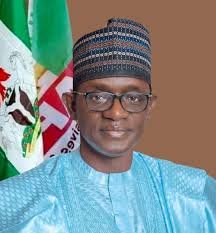The Yobe State government has approved the establishment of a high-powered cultural committee to revive the state’s traditional heritage, with special focus on the indigenous wrestling sport known as ‘Kokuwa’.
This follows the approval of Governor Mai Buni, who appointed the Deputy Governor, Idi Gubana, as chairman of the committee.
The appointment was confirmed in a letter issued by the office of the secretary to the state government.
The letter said the committee’s mandate includes reviving traditional wrestling tournaments, promoting cultural tourism, and developing a framework for sustainable cultural activities across the state.
Read also:
APC tightens grip on Yobe as PDP’s Yarin Fika leads mass defection to ruling party
Buni presents N515.5bn 2026 budget, targets modern healthcare, quality Education in Yobe
Yobe ready for 5th Lake Chad Basin Governors’ Forum in Maiduguri
The membership cuts across senior government officials, legislators, special advisers, cultural leaders, and local government chairmen.
The move marks a renewed effort by the Buni administration to restore the state’s cultural pride and engage youths through traditional sports and creative industries.
Unlike past efforts that focused mainly on ceremonial events, the new committee is expected to organize annual ‘Kokuwa’ competitions, restore local festivals, and document Yobe’s cultural history in collaboration with communities.
Residents and stakeholders have welcomed the development, describing it as a timely intervention to preserve cultural identity and create economic opportunities.
“Culture is a soft power; it promotes unity, security, and identity,” said public analyst Ibrahim Bukar.
“By reviving Kokuwa, Yobe is not only preserving its history but also creating new social and economic opportunities for young people.”
Community leaders and cultural associations across the state have also commended the initiative, calling it a turning point in Yobe’s efforts to reclaim its cultural heritage.
Observers say the plan aligns with Gov. Buni’s broader agenda of balancing modernization with tradition, promoting tourism, and empowering youths through creative and cultural engagement.






